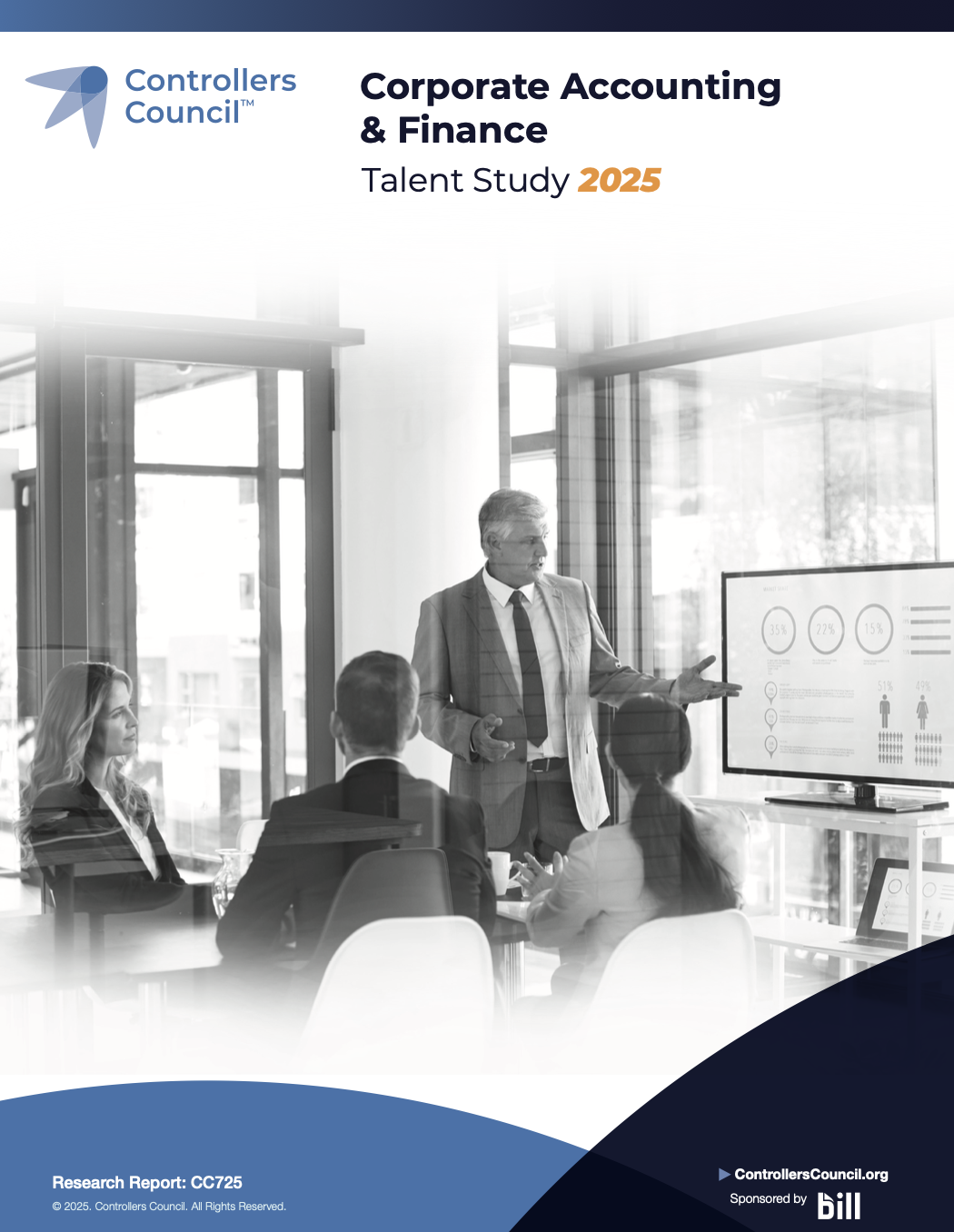Controllers Council recently held a panel discussion on The Unfolding Impact of AI, sponsored by Prophix.
Prophix began as a software distributor. After years of implementing financial applications, the company’s founders recognized the need for an innovative planning and reporting system; Prophix’s financial performance platform was born. Our expert is Adrian Wilkinson. He has more than 25, years of experience, and he is product marketing manager at Prophix Software.
Following are key takeaways to this discussion. If you are interested in learning more, view the full webinar archive video here.
A Brief History of AI
In Alan Turing’s 1950 paper, Computing Machinery and Intelligence, he initially asked, “Can machines think?” That he modified the question soon after to, “Can machines do what we can do?” He makes use of a party game known as the imitation game, a vehicle to demonstrate how this question might play out. The way the game would play out is a man and woman would go into separate rooms and guests would ask them questions to try and tell them apart. The wrinkle is each person in the respective room would respond to the questions by providing typewritten answers pretending to be the other person. Turing modified the game by asking what would happen if you replaced the man or woman with a computer? Would the party guests be able to identify who is who? Now, take the basis of this game and transition it to a situation where a person is conversing only with a computer.
Will the computer be capable of having a conversation at a level that a person can’t tell that it isn’t another person they’re interacting with? This eventually became known as the Turing Test. Basically, it is a test of machine or a computer’s ability to exhibit intelligent human behavior well enough to convince a human that they’re talking to another person, kind of like applications used in ChatGPT, to be honest. We, being intelligent humans can learn and adapt, so how about computers?
Artificial intelligence has been used interchangeably with machine learning. However, machine learning is a subsection of artificial intelligence. AI is an area of computer science that deals with computer vision, speech recognition, neural networks, image recognition, machine learning, natural language processing, and so on.
Generative AI Today
Machine learning is a broad field of artificial intelligence that focuses on building systems capable of learning from and making decisions based on data. With machine learning, there are various approaches and techniques, and deep learning is one of them. Deep learning specifically refers to a set of algorithms, known as neural networks, which are designed to mimic the way the human brain operates. Essentially, this is training a computer by feeding it an enormous amount of data with known or labeled outcomes, so the neural network learns. The computer iterates numerous times and improve its accuracy against the data set through the learning process. And these neural networks consist of layers of interconnected nodes or neurons, which process data in a hierarchical manner. The deep in the deep learning refers to the use of multiple layers in these networks, which allows them to learn complex patterns and large amounts of data.
Deep learning has been particularly successful in tasks that involve very large data sets, and required the model automatically learn features from the data, such as image and speech recognition, natural language processing, and many other AI applications. ChatGPT, for instance, uses a type of deep learning model called a transformer, which is particularly effective in processing and generating human language through natural language processing.
AI as an Investment in 2024
Our finance leader survey shows that the more traditional tech investments, like cybersecurity, planning, budgeting, and forecasting solutions, and risk management were the top priorities in 2023, which makes sense in the wake of uncertainty. You know that cybersecurity is always going to be up there, and this makes sense. If you could just maybe click, I think it’ll bring up a build for me… There we go. But what’s even more interesting, investments in AI are on the rise, and I imagine that this is only going to rise through the course of next year, in 2024. Our understanding of what AI can do is becoming so much more real. And just further on the research, 43% of the finance leaders said that focusing on finding innovative ways to increase efficiency and generate insights is their main focus for the finance department.
How is AI Solving Finance Challenges?
One thing that was really clear with the survey is that finance people are innovators. They’re not just number crunchers, they’re innovative people and they want to drive value, and they want to drive efficiency. They’re analytical and they’re seeking opportunity for things to be more efficient and be better. But the bottom line, being to drive financial performance. It’s no longer just the tech folks who are driving innovation. And that makes sense when you think of the mindset of finance peoples, they look at things logically, and there are logical ways to improve, and they want to do it.
In the survey, we identified three leadership approaches and observe which approach finance leaders aligned with most. The first, visionaries. They’re the leaders who focused in on the grand plan for the future of finance in their organization. They need to be able to share their vision effectively, and most important, have the data to back it up. Innovators are leaders who look at the current processes and technology to find new ways of doing things. They experiment, they’re agile, and they’re okay with change. And the realists are leaders focused on practical next steps in the next few years, may want to improve the finance function, but they’re most concerned about the here and now. Each of the three leadership approaches has its place in finance, and each leader may adopt one or more throughout the course of their career, the year, the quarter, and maybe even the month. When we’re talking about the gap between the enthusiasm for AI and machine learning, and the actual follow through towards implementation in the finance department, the push and pull of visionary, innovator, and realist really explains a great deal.
Where can you effectively apply AI today in finance performance management?
Closing the books is a top area of focus on implementing AI today. The obvious situation is processing many transactions as quickly as possible and detect anomalies. Businesses can try to manage this by tasking or over-tasking staff and to review transactions in a given timeframe. Even then, it’s impossible to put enough human resources to go through every single transaction. So, we resort to applying rule sets to help bundle or bubble up ones that need further attention, or doing random spot checks to see if anything gets caught.
Next would be scenario planning. Being able to rapidly do scenario planning for budgets and revised forecasts. You can perform planning more often since AI is doing the heavy lifting. This is valuable when market dynamics change quickly, or dramatically, as it allows you to plot a course of action to navigate choppy water successfully. And finally, reporting is another area that is ready for the use of AI. Building reports using AI can quickly scan data and create commentary that would take an analyst considerably more time. Analysts can get above of how to build the reports, i.e. collecting data and doing the actual writing, and they can now focus on value added activities and make impactful recommendations.
To view the complete webcast, download full webinar here.
ABOUT THE SPONSOR:
Ambitious finance leaders use Prophix to drive progress, improving the speed and accuracy of decision-making. Prophix’s financial performance platform elevates the talents of finance teams to do their best work, crush complexity, reduce uncertainty, and illuminate insights with access to best-in-class AI insights and planning, budgeting, forecasting, reporting, and consolidation functionalities. Prophix is a private company backed by HG Capital, a leading investor in software and service businesses. More than 2,500 active customers across the globe rely on Prophix to achieve success. For more information visit prophix.com.




